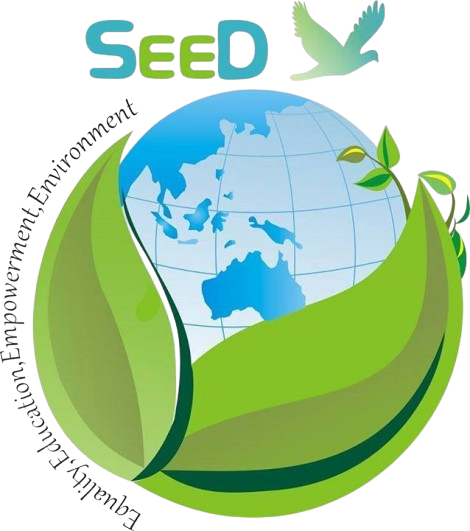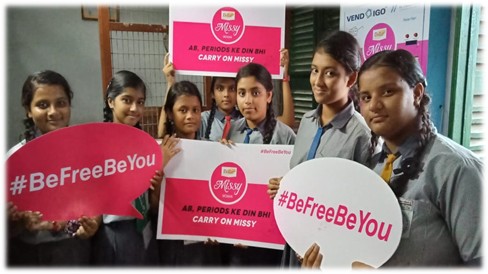






In the climate-stressed regions of the Sundarbans and peri-urban areas of South Bengal, adolescent girls face compounded challenges where climate change directly intensifies period poverty, creating barriers to menstrual health, educational continuity and long-term academic outcomes.
Climate-induced period poverty manifests when extreme weather events destroy local economies, reduce household incomes, and simultaneously increase the cost of menstrual products due to supply chain disruptions. Families already struggling with climate-related income losses often deprioritize menstrual health expenses, viewing them as non-essential compared to basic food and shelter needs. This economic vulnerability is compounded when cyclones and floods damage local markets and transportation networks, creating scarcity that drives up prices beyond the reach of climate-affected families.
The intersection of climate disasters and period poverty creates a cascading effect on educational outcomes. When families cannot afford menstrual products and school toilet facilities are damaged by extreme weather events, girls are doubly disadvantaged. Climate-induced infrastructure damage eliminates safe spaces for menstrual management, while simultaneous economic hardship prevents families from purchasing alternative products, forcing girls to choose between compromising their dignity and safety or staying home during menstruation.
To address these intersecting climate, economic and educational challenges, SEED, in collaboration with Dollar Industries, launched a comprehensive Menstrual Hygiene Management (MHM) initiative specifically designed to combat climate-induced period poverty while building educational resilience. The programme installed Automatic Sanitary Napkin Vending Machines and incinerators across 100 government and government-aided girls schools, providing free or subsidized access to menstrual products that remain available even when local markets are disrupted by climate disasters.
This approach directly addresses period poverty by removing economic barriers to menstrual products while ensuring consistent availability regardless of climate-related supply chain disruptions. The installation of incinerators provides environmentally sound disposal solutions that reduce long-term costs for schools and communities, creating a sustainable model that withstands repeated climate shocks.
Extensive MHM awareness campaigns emphasized climate-adaptive hygiene practices and economic resilience strategies, including water conservation techniques for menstrual hygiene and community-based support systems that help families cope with climate-induced economic stress. The initiative positioned menstrual health as a critical component of climate adaptation, helping girls develop strategies to continue their studies despite economic hardship and infrastructure damage.
School staff received comprehensive training in managing both vending machines and incinerators while fostering supportive environments where girls could access menstrual products with dignity and confidence, regardless of their families economic circumstances or climate-related losses. This approach recognizes that sustainable menstrual health solutions must address both immediate product access and the underlying economic vulnerabilities that climate change exacerbates.
This climate-responsive initiative acknowledges that combating period poverty is fundamental to preventing climate-induced educational dropout, ensuring that girls can continue their studies despite economic hardship, damaged facilities and disrupted supply chains. By addressing the economic dimensions of climate-induced menstrual health challenges, the program builds long-term educational and economic resilience in vulnerable coastal and peri-urban communities where climate impacts disproportionately threaten adolescent girls academic futures and life opportunities through the mechanism of period poverty.



Subscribe to the SEED Newsletter — and be part of the change!